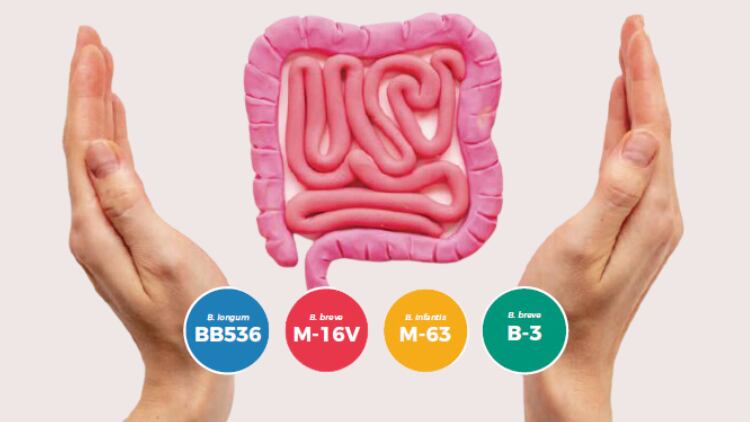Cognitive health is an increasing focus globally as populations age, and particularly in Asia Pacific.
Cognitive conditions, which start with mild cognitive impairment (MCI), including memory loss and general forgetfulness, can progress to serious health issues such as dementia.
In 2015, almost 47 million people globally were living with dementia. This figure is projected to rise to over 131 million by 2050, with almost half of all cases in Asia.¹
It is believed that Alzheimer’s – the most common type of dementia – begins with the abnormal production and accumulation of beta-amyloid, a protein in the brain.² The accumulation can lead to problems with thinking, memory and performing day-to-day tasks, and can cause atrophy.
“Making lifestyle changes, such as increasing exercise, a balanced diet and getting enough quality sleep from around the age of 40, before older age, is an important part of reducing the onset of cognitive decline,” says Saki Yamashita, Marketing Strategy Manager, International BtoB Business Dept. at Morinaga Milk Industry, a dairy company and leader in probiotics research based in Tokyo.
As well as lifestyle improvements, research by Morinaga has shown that incorporating biotics into the diet can be an additional beneficial approach to support cognitive health.
The gut-brain axis
The relationship between the gut and the brain is an exciting and growing area of scientific research. Between 2014 and 2024, the number of studies on the gut-brain axis increased by over 800% to over 1,500.³
As more becomes known about the relationship between the gut and the brain, research is demonstrating a close relationship between probiotics and cognitive health, achieved by the gut-brain connection.
As such, the potential of probiotics to lessen cognitive impairments and enhance cognitive abilities is a “growing trend”, says Doris Huang, Food Regulatory Consultant, Food Business Division, CIRS Group. Huang also cites the popularity of the ‘fourth meal’ concept – a daily dose of supplements, multivitamins and functional foods – in China where probiotics have “skyrocketed”.
“Probiotics have emerged as a powerhouse in the realm of cognitive health,” Huang says. “Exploring their potential benefits and the regulatory considerations for promoting [probiotic] products in China and other Asia-Pacific regions is important for driving development in this field.”
Cognitive health: Senior populations “under-catered for”
The probiotics market is still ripe for innovation with cognitive function a prime opportunity for new product development. For brand developers keen to tap commercial opportunities, an awareness and understanding of emerging health trends is key.
Recent research carried out by Lumina Intelligence identified healthy ageing and longevity as one of the top consumer health concerns in key APAC markets.
“Biotic applications expanded beyond digestion and immunity a long time ago,” says Ewa Hudson, Director of Insights, Lumina Intelligence, who believes future innovation will involve using the latest science to carve out niches to tackle new health concerns and the latest consumer needs.
“Memory biotics tick that box, with few products on the market versus the number of people in need. If we look at seniors, we can see that this population is still under-catered for. The marketplace for biotics for seniors that improve memory and cognition is wide open.”
A dedicated probiotic strain for cognitive function
In a biotic landscape which is crowded and competitive Bifidobacterium breve MCC1274, a unique probiotic strain developed by Morinaga Milk, has emerged as a cutting-edge, science-backed solution to improve cognitive function and alleviate brain atrophy.
Since its first study released in 2017, MCC1274 is widely documented for its clinical effects on the gut-brain axis and the memory function of the brain, part of cognitive function that declines with age in middle-aged adults. The award-winning strain has been patented for use in several countries worldwide and has Food with Function Claim (FFC) in Japan and FDA GRAS status since 2022 in the US.
A 2020 randomised double-blind, placebo-controlled trial studied the effect of MCC1274 on the cognitive functions of older adults with suspected mild cognitive impairment.⁴ Those in the group taking MCC1274 for 16 weeks showed significant improvement of the Cognitive Function score compared with the placebo group. In another RCT study, intaking MCC1274 for 24 weeks shows improvement of memory function, indicating that the strain exerts its effect on maintaining cognitive function by reducing brain atrophy.⁵
For manufacturers, Morinaga’s MCC1274 guarantees excellent stability and safety profiles, allowing it to be incorporated into innovative applications from functional foods to nutritional supplements, without compromising its beneficial effects.
The future of probiotics for cognitive health is bright, believes Huang. “Technological innovation is at the forefront, with researchers exploring novel strength and developing personalised probiotic products.”
As the global ageing trend shows no sign of slowing, and science continues to unlock the continued potential of probiotics for cognitive health, white space opportunities in the market are wide open for development.
Missed the Spotlight On broadcast? Catch up on demand
Ewa Hudson, Doris Huang and Saki Yamashita were speaking at a Spotlight On event, broadcast on 27 February 2025. Watch on demand by registering here for Probiotics: Cognitive Health in an Aging World and hear more on the latest regulations, consumer insights and white space opportunities in APAC markets for formulators in the nutraceutical and functional food space.
References
- Alzheimer’s Disease International. World Alzheimer Report 2015.
- World Health Organization. Dementia.
- Source PubMed (Ewa - slide 6).
- Xiao, J.; et al. Probiotic Bifidobacterium breve in Improving Cognitive Functions of Older Adults with Suspected Mild Cognitive Impairment: A Randomized, Double-Blind, Placebo-Controlled Trial. J Alzheimers Dis. 2020;77(1):139-147.
- Asaoka, D.; et al. Effect of Probiotic Bifidobacterium breve in Improving Cognitive Function and Preventing Brain Atrophy in Older Patients with Suspected Mild Cognitive Impairment: Results of a 24-Week Randomized, Double-Blind, Placebo-Controlled Trial. J Alzheimers Dis. 2022;88(1):75-95.








